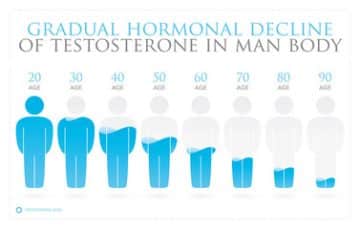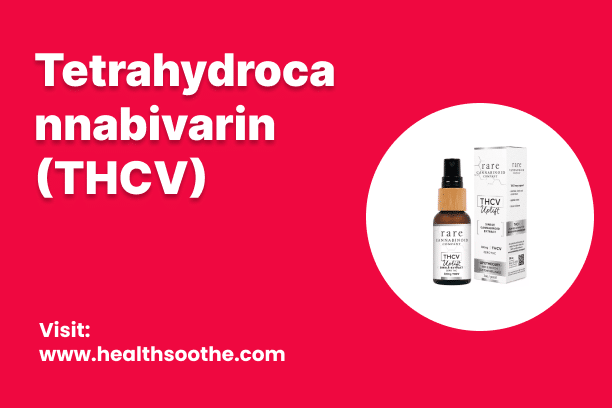Testosterone is a vital sex hormone that plays an integral role in developing various male characteristics. It is responsible for male potency, bigger muscles, facial hair distribution, and changes in voice, muscle growth, development, and retention as well as energy production. In adults, having healthy testosterone levels is essential for general health, sexual function, body composition, and preventing various diseases.
Increasing testosterone levels can also spark rapid gains in muscle mass. On the other hand, low testosterone level results in weight gain, reduced muscle mass, and higher disease risk.
Low T? Here Are The Signs To Look Out For Low Testosterone
Reduced sex drive
This is likely the first signal that something is off when it comes to testosterone levels. If you previously had a healthy sex drive and enjoyed intimacy, but now have lost interest, then this is a sure signal.
This is a lot different than erectile dysfunction which is not caused by low testosterone. In that case, there is a will and desire but you’re physically not able to have sex. That’s a big difference.
This can happen slowly as men lose about 1% of their testosterone per year after hitting 30 years of age. But, one day you realize that you just aren’t interested in sex anymore and it means you have likely lost too much testosterone.
Sleep problems
If your sleep patterns are thrown off and happen in conjunction with the low sex drive, then this could also be a sign.
And this doesn’t just mean trouble falling asleep or insomnia, but even something as serious as sleep apnea can be caused by low testosterone. This is a serious condition in which the airway is disrupted and causes you to stop breathing for a few seconds at a time while sleeping. This prevents you from being fully asleep as you wake up slightly to begin breathing again.
Then, there are the less serious issues of insomnia and interrupted sleep which can also cause a host of other problems.
Emotional changes
Many men with low testosterone report feelings of depression and a general feeling of sadness. Since testosterone is a hormone, the changes of course also affect you emotionally.
Even problems with concentration and memory loss are common. On their own, these symptoms may point to dementia setting in or just simply signs of ageing in general. But when taken with the other symptoms, it can point to Low T.
Testosterone level peak during puberty in most males and the levels naturally drop with age. However, there are natural ways to boost testosterone levels. Here is a look at 10 of them:
Stay physically active
Physical activity is one of the most effective ways of staying healthy. Regular exercise can affect the production of different hormones, including sex hormones like testosterone. According to one study conducted on the relationship between workout and testosterone level, participating in regular physical activity has a positive effect on serum testosterone levels. It also helps to reduce belly fat and obesity. In addition to maintaining a healthy weight, physical activity increases your energy levels, keeps you fit, and improves blood circulation as well as metabolic functions. Physical activity also results in muscle growth and retention.
2. Keep a healthy weight
Studies have shown that men who are obese or overweight have low testosterone levels. General body fat and abdominal fat have a negative correlation with serum testosterone levels. Maintaining a healthy weight and shedding off extra fat can improve your testosterone production. Underweight men should also aim to bring their weight up to a healthy level. Establishing a healthy lifestyle generally has positive effects on hormone production. Managing your weight will, therefore, help you bring up testosterone to normal levels. What's more, weight management entails physical activity, a balanced diet, and positive lifestyle habits that work in unison to promote health and wellness.
3. Testosterone boosting ingredients
Several ingredients can increase natural testosterone levels. Famous examples include Tribulus Terrestris, ashwagandha, Garcinia cambogia, and ginger extracts. These ingredients either improve serum testosterone levels or sperm count. Other common ingredients purported to boost testosterone include horny goat weed, Tongkat Ali, shilajit and Mucuna prurient. Integrating these herbs and spices in your diet can have positive effects on your testosterone production. However, this approach suits those who already have low testosterone levels. It is still unknown whether they can boost testosterone in subjects who have optimum levels.

4. Avoid stress
Stress, depression, and anxiety are not suitable for testosterone production. This is because stress triggers the production of stress hormones such as cortisol, which hurt testosterone. According to research, elevated levels of cortisol will suppress testosterone and vice versa. Therefore, it is important to minimize and manage stress. You can achieve this by cutting down strenuous working hours and participating in activities that you love.
5. Get enough sleep
Lack of sleep can affect hormone production and cycles in the body. According to studies, poor sleep pattern is among the top factors contributing to low testosterone levels. You should make sleep a priority to bring back your testosterone to normal levels. It is also important to rest after participating in exhausting activities. As a rule of thumb, you should get at least 7 hours of sleep every day to impact hormone and chemical cycles in the body positively.
6. Testosterone boosting steroids

Using steroids is another effective way of boosting testosterone levels in the body. There are several testosterone-boosting steroids available in the market offered for muscle gains and athletic performance enhancement. Most steroids have active compounds that will either directly boost testosterone levels or improve other functions that promote the natural production of the hormone.
7. Hormone replacement therapy
Subjects with deficient levels of testosterone can benefit from hormone replacement therapy. This is an advanced medical procedure that involves directly increasing testosterone levels through injections, pills, or supplements. It may also comprise a combination of treatments that include physical therapy, medication, and lifestyle changes.
8. Vitamin and mineral supplements
Vitamins and minerals play a central role in hormone production and affect testosterone levels in most men and women. Some of the nutrients associated with testosterone production and other male sex hormones include zinc, vitamin A, C, D and E. Zinc and vitamin D have the most persuasive evidence in improving testosterone production in subjects who are deficient of such nutrients. Vitamins, supplements like Primegenix and other micro-nutrients also harbour positive effects on testosterone production.
9. Eat a balanced diet with lots of protein, non-saturated fats, and complex carbs
Eating a balanced diet will optimize all body functions and naturally boost testosterone production. What you eat will impact your hormones, so it is essential to review your long-term diet and caloric intake carefully. Overeating and relentless dieting can negatively impact your testosterone production. Make sure you eat a balanced diet that comprises proteins, unsaturated fats, complex carbs, fiber, and vitamins.
10. Establish a healthy lifestyle
A healthy lifestyle that features regular exercise, a balanced diet, and active sex life can help improve testosterone production. It is also vital to avoid estrogen compounds, parabens, and BPA as well as plastic-like chemicals. Excess alcohol and cigarette smoking can also negatively impact testosterone production.
Getting your blood checked regularly is also important in a healthy lifestyle as it can help in the diagnosis and appropriate treatment for conditions you might not even be aware of. You can start learning more about yourself by looking into hormone testing.
Conclusion
As a naturally occurring hormone, various factors affect testosterone production. Maintaining general health and avoiding harmful substances will optimize your production of testosterone. It is important to review every ingredient you consume. Healthy habits such as regular workout, getting enough quality sleep/rest, and stress reduction will also support your natural hormone production.
Author Bio: Jessica Smith
Jessica is an avid reader who enjoys getting lost in the world of books. Holding on to her passion for fitness, She Believes that a healthy diet is a key to healthy living
RELATED READING
- Oral Symptoms That Point Out Growth Hormone Disorders
- 10 Questions About Hormones Answered
- Fitness and Nutrition: An Excellent Combination for eating Healthy
- You can laugh at your diabetes worries-if you follow this simple plan








